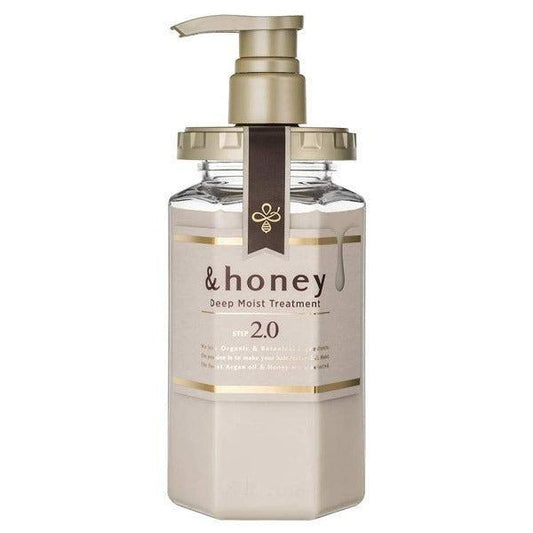Collection: Japanese Hair Conditioner
Japanese hair conditioners are designed to complement the cleansing action of shampoos and provide nourishment, moisture, and protection to the hair. These conditioners often incorporate traditional Japanese ingredients and unique formulations, reflecting the country's rich heritage in hair care. Here are some key features of Japanese hair conditioners:
1. **Botanical Extracts**: Many Japanese conditioners contain extracts from plants native to Japan, such as camellia (tsubaki) oil, rice bran, green tea, sakura (cherry blossom), and seaweed. These ingredients are known for their moisturizing, antioxidant, and hair-strengthening properties.
2. **Ceramides and Amino Acids**: To help repair and strengthen the hair's structure, Japanese conditioners often include ceramides and amino acids, which can help improve elasticity, smoothness, and manageability.
3. **Innovative Silicone Alternatives**: While some Japanese conditioners do contain silicones for smoothing and shine, there is a growing trend towards using innovative, non-silicone ingredients like botanical oils and esters to achieve similar benefits without the potential for buildup or heaviness.
4. **Scalp Care**: Many Japanese conditioners also focus on promoting a healthy scalp environment by including ingredients like menthol, peppermint, or tea tree oil, which can provide a refreshing and invigorating sensation.
5. **Hair Type Specific**: Japanese conditioners are available for various hair types and concerns, such as color-treated hair, dry or damaged hair, frizzy hair, or fine hair.
6. **Lightweight Formulas**: Japanese conditioners are often designed to be lightweight and non-greasy, providing nourishment without weighing down the hair or leaving a residue.
7. **Pleasant Fragrances**: Like many Japanese hair care products, conditioners often feature subtle, natural fragrances inspired by botanical ingredients or traditional Japanese scents, adding to the overall sensory experience.
8. **Eco-Friendly and Sustainable Practices**: Some Japanese haircare brands prioritize eco-friendly and sustainable practices in their manufacturing processes and packaging, reflecting the Japanese appreciation for nature and minimalism.
When using Japanese hair conditioners, it's essential to follow the instructions on the product label. Some conditioners are designed to be used as a rinse-out treatment after shampooing, while others may be leave-in formulas for added moisture and detangling. Many Japanese conditioners are also compatible with various hair-styling techniques, such as heat styling or air-drying, helping to protect and enhance the hair's appearance and manageability.
1. **Botanical Extracts**: Many Japanese conditioners contain extracts from plants native to Japan, such as camellia (tsubaki) oil, rice bran, green tea, sakura (cherry blossom), and seaweed. These ingredients are known for their moisturizing, antioxidant, and hair-strengthening properties.
2. **Ceramides and Amino Acids**: To help repair and strengthen the hair's structure, Japanese conditioners often include ceramides and amino acids, which can help improve elasticity, smoothness, and manageability.
3. **Innovative Silicone Alternatives**: While some Japanese conditioners do contain silicones for smoothing and shine, there is a growing trend towards using innovative, non-silicone ingredients like botanical oils and esters to achieve similar benefits without the potential for buildup or heaviness.
4. **Scalp Care**: Many Japanese conditioners also focus on promoting a healthy scalp environment by including ingredients like menthol, peppermint, or tea tree oil, which can provide a refreshing and invigorating sensation.
5. **Hair Type Specific**: Japanese conditioners are available for various hair types and concerns, such as color-treated hair, dry or damaged hair, frizzy hair, or fine hair.
6. **Lightweight Formulas**: Japanese conditioners are often designed to be lightweight and non-greasy, providing nourishment without weighing down the hair or leaving a residue.
7. **Pleasant Fragrances**: Like many Japanese hair care products, conditioners often feature subtle, natural fragrances inspired by botanical ingredients or traditional Japanese scents, adding to the overall sensory experience.
8. **Eco-Friendly and Sustainable Practices**: Some Japanese haircare brands prioritize eco-friendly and sustainable practices in their manufacturing processes and packaging, reflecting the Japanese appreciation for nature and minimalism.
When using Japanese hair conditioners, it's essential to follow the instructions on the product label. Some conditioners are designed to be used as a rinse-out treatment after shampooing, while others may be leave-in formulas for added moisture and detangling. Many Japanese conditioners are also compatible with various hair-styling techniques, such as heat styling or air-drying, helping to protect and enhance the hair's appearance and manageability.
-
A conditioner with Botanical extracts of Orchid, Cow Brand
Regular price $3.74 USDRegular priceUnit price / per$3.74 USDSale price $3.74 USD -
&honey Silky Smooth Moisture Treatment 2.0 (Japanese Honey Conditioner) 445g
Regular price $15.99 USDRegular priceUnit price / per$24.95 USDSale price $15.99 USDSale -
&honey Melty Moist Repair Treatment 2.0 (Japanese Honey Conditioner) 445g
Regular price $15.99 USDRegular priceUnit price / per$24.95 USDSale price $15.99 USDSale -
&honey Deep Moist Treatment 2.0 (Japanese Honey Hair Conditioner) 445g
Regular price $15.99 USDRegular priceUnit price / per$19.99 USDSale price $15.99 USDSale




